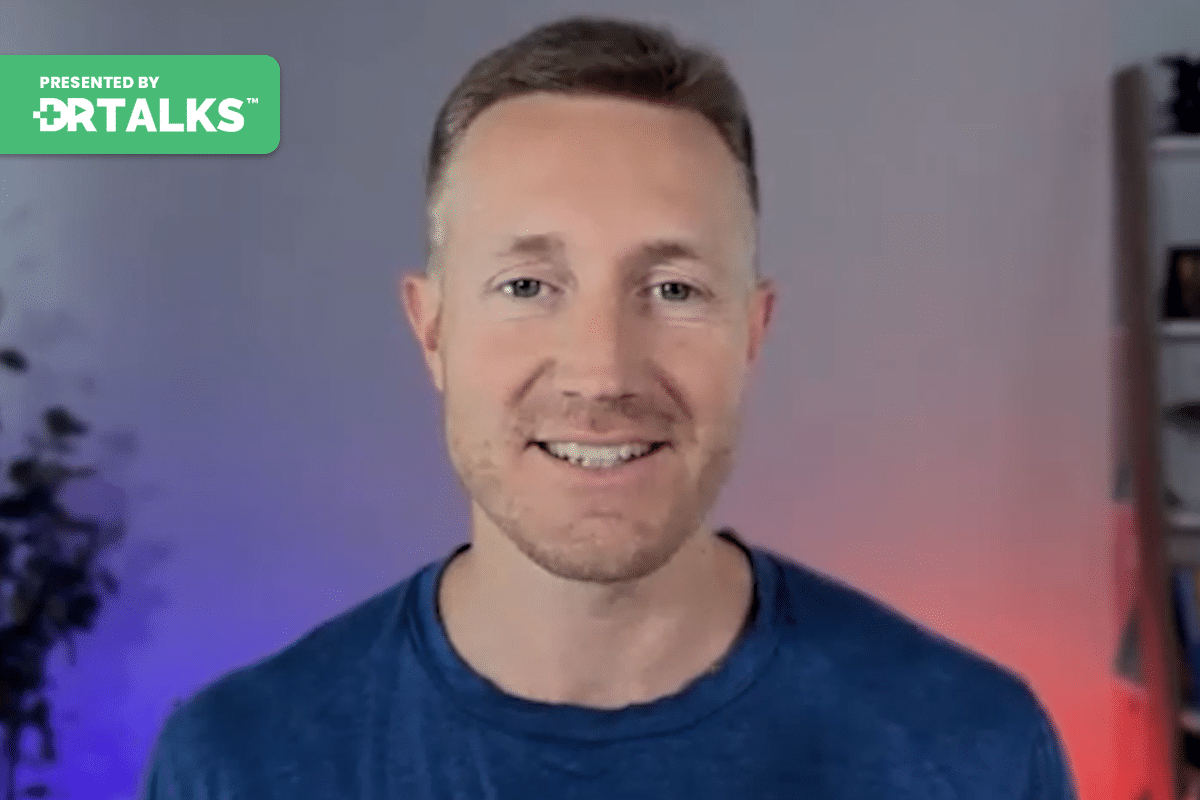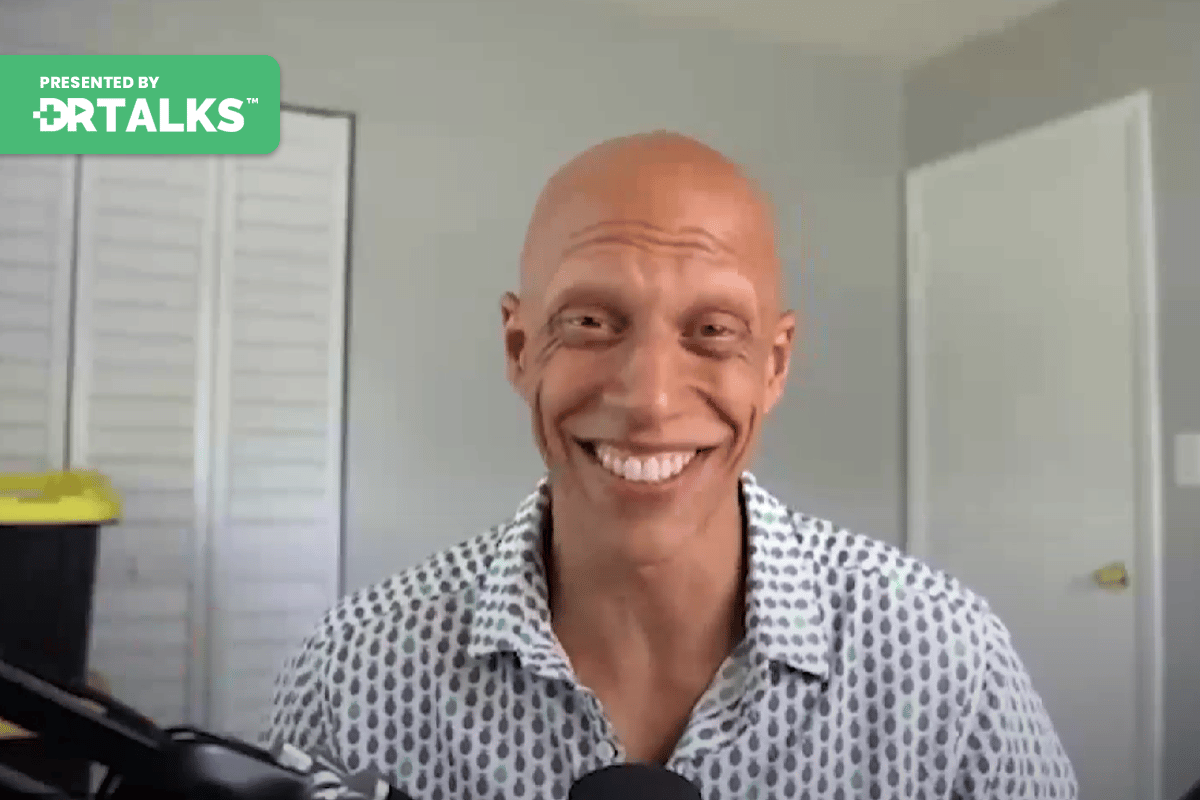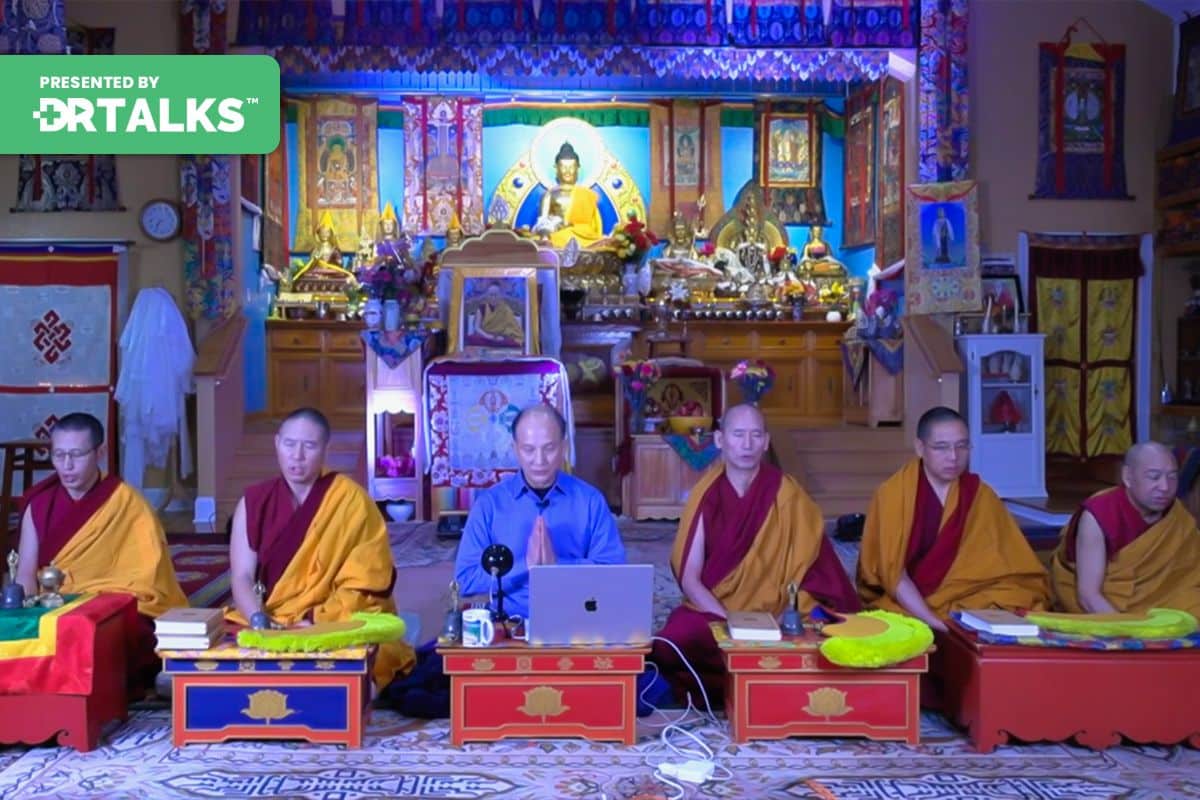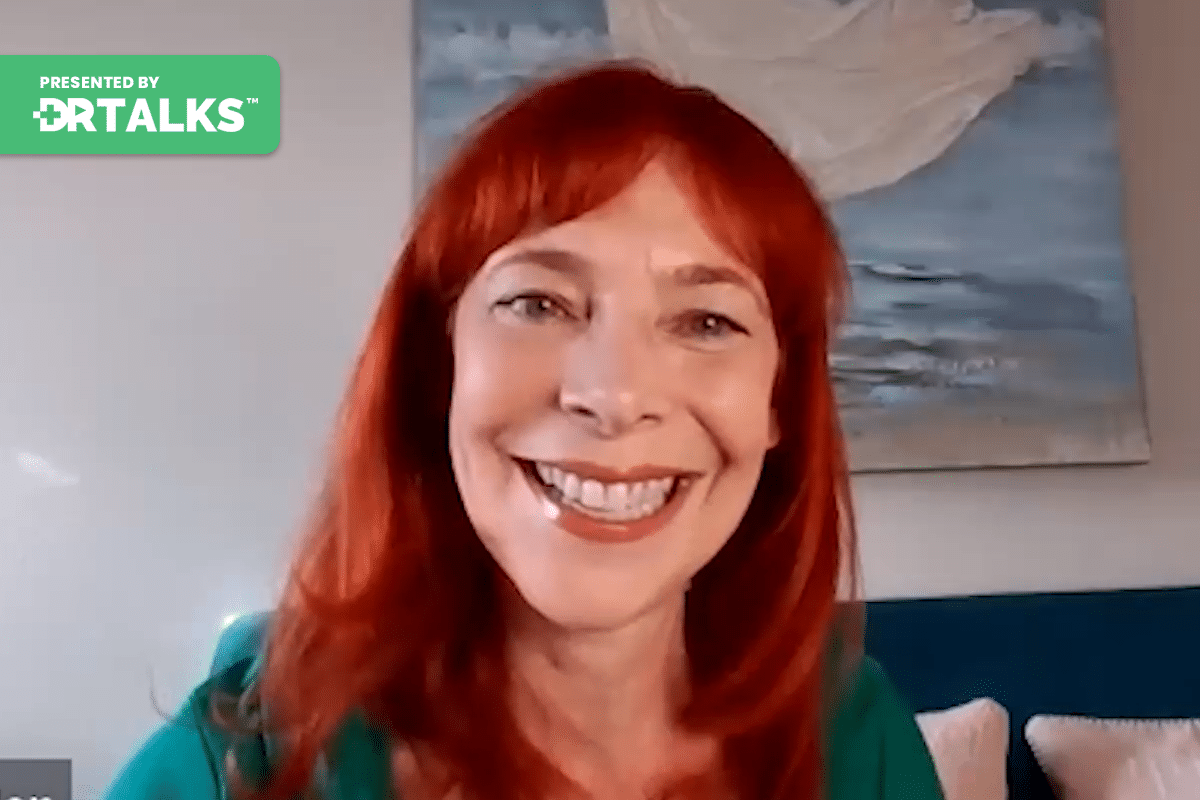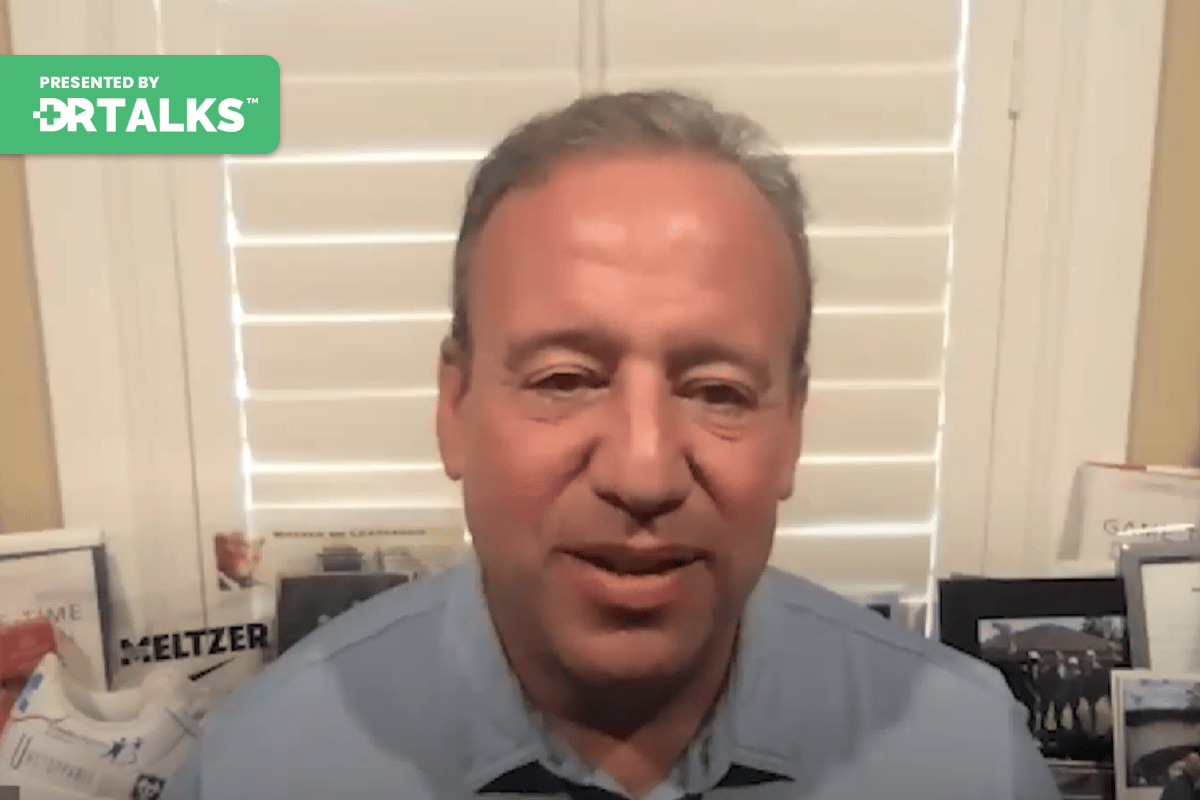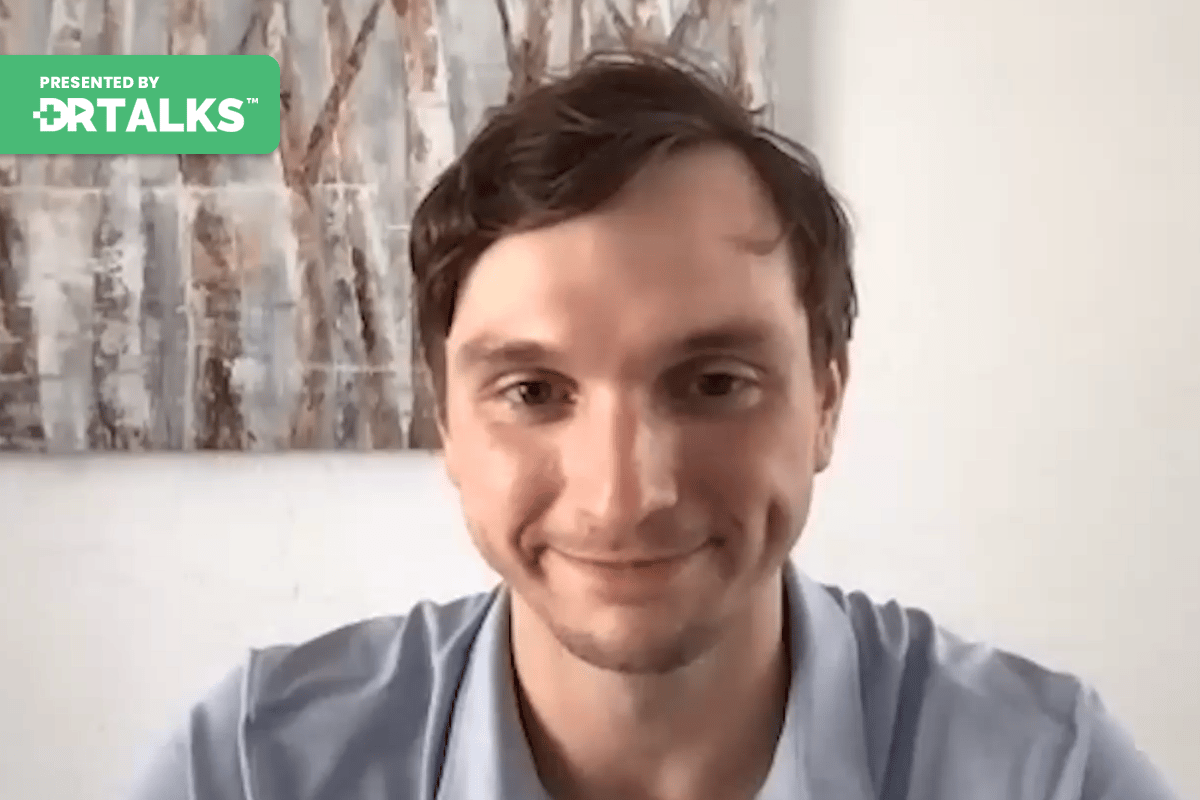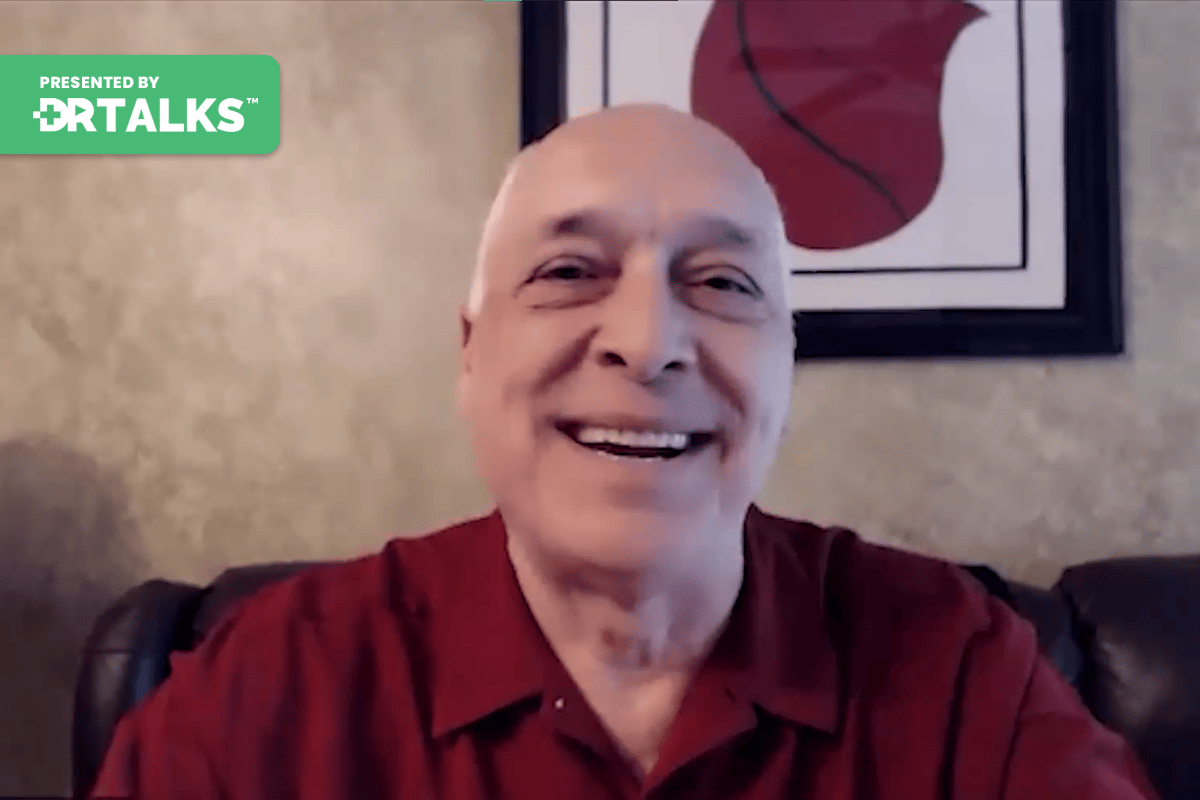Join the discussion below
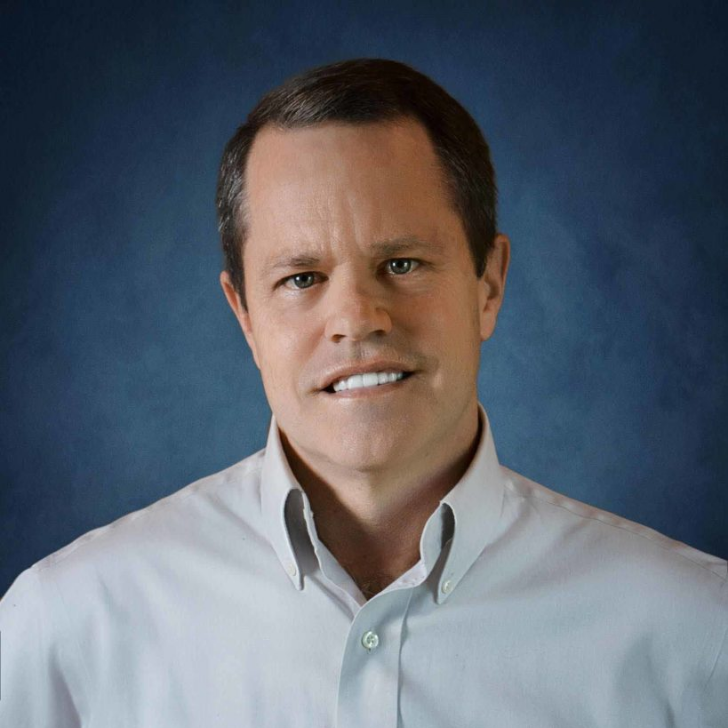
Tom McCarthy is a husband, father, author, speaker, entrepreneur, and investor who has owned businesses in the training, software, financial services, and restaurant industries. Tom’s clients in his training business include some of the worlds leading companies such as Cisco Systems, Microsoft, Salesforce, Wells Fargo, and MetLife. His latest book,... Read More
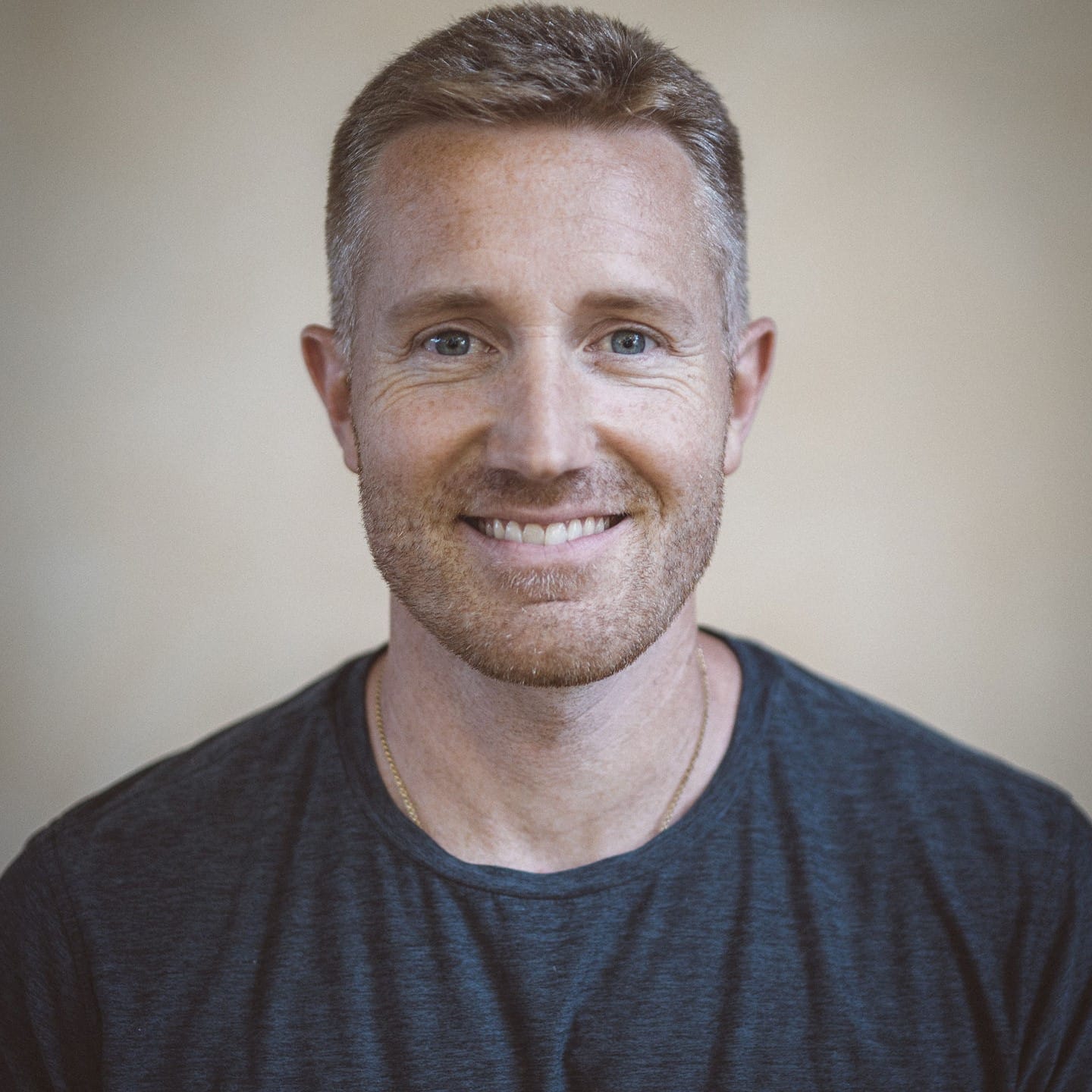
Jason Prall is a health educator, practitioner, author, speaker, & filmmaker. In 2018, his independent research and experience led him to create "The Human Longevity Project”, a 9-part film series that uncovers the true nature of chronic disease in our modern world. He’s currently finishing his first book titled, “The... Read More
- The most important aspect of healing dis-ease
- How subtle energies in our environment affect health
- Top 3 lifestyle factors to increase longevity
Tom McCarthy
Hi everyone, I’m super excited to introduce our next guest and you probably know him because he’s a co host with me of this global energy healing summit. His name is Jason Prall and I’ve gotten to know Jason over the past couple of years. Pretty doggone. Well, we have a weekly meeting where we’re talking and I’ve been so impressed with him, he’s quite a bit younger than me, but he’s really on this path of enlightenment. He’s on this path of helping humanity really flourish. Uh he wrote a great new book. I’ve got it actually here with me, it’s called Beyond Longevity fantastic book. And we’re gonna dive into that a little bit today because heck we’re all interested in longevity, but you know, this is beyond longevity. You know, it says a proven plan for healing faster, feeling better and thriving at any age, you know, who wants to live longer and feel crappy. And so Jason is cracking the code and helping people all over the world to do that. His book was published by Hay House and it really is fantastic. Everyone should run out and get a copy of it, Jason. Welcome to your summit and my summit, Good to have you here.
Jason Prall
Yeah, it’s good to see you. I feel like it’s only yesterday that we saw each other, but I appreciate all the kind words and uh and everything you said about my book and this is, it’s a pleasure to co host this summit with you.
Tom McCarthy
Yeah, I know a lot of fun. So let’s start diving in. But let’s let’s talk a little about you, like how did this ever become something you’re to me, you’re still a young guy, right? So how did longevity? And and I know you did a film about it where you traveled the world seeking out answers to, you know, why certain people in certain regions were living longer. Why did this how or how did this become such a passion of yours?
Jason Prall
Yeah, well, it started with my own health issues, right? I had chronic joint pains at 13. Right, So that’s the exact opposite of longevity, right? I was experiencing something that, you know, I was seeing in my grandparents at such a young age, uh, and then I had skin conditions in my 20 chronic skin condition in my twenties. Um, and I couldn’t find answers to these things. And so that propelled me into this sort of uh, on this course of health. And ultimately, that that led me to quitting my job as a mechanical engineer, totally switching professions, becoming a health practitioner and sort of the Integrative functional medicine space. And, and and doing that for a number of years, primarily in that sort of functional medicine model of running these sort of complex functional tests and looking at biomarkers and figuring out how to help people get out of this tailspin that they found themselves in with their health and, and I ran up against a wall in that process, which was, I could, I could help some many people get better and I was pretty decent at that. It actually fit my skill set really well.
And then there was just a handful of people I couldn’t, I couldn’t help and I couldn’t understand why I was, I was literally blind to what was going on at that time. And fundamentally what I was missing was this sort of what we might classify as trauma, this global peace that I was a trauma. Now, since then I have a more refined understanding of what I sort of first realized this trauma, but it was a cultural conditioning, it was familial conditioning. So it was the mental and emotional condition, habituated thought patterns, emotional patterns and that the wounds and the traumas that we experience primarily in childhood because that’s when a lot of this stuff gets laid down, right? It’s kind of who we become is whatever happened in the early life experiences. And so what I realized was that that was so fundamental. And then that led me to the next phase or evolution of my understanding which was, oh wow, there’s something more fundamental than our biology which is essentially the the essence of the summit, which is this idea of energy and I think along with this idea of energy is intelligence.
So these are the two components that I think the final linchpin in my, in my broad understanding of what was causing this, this, this these issues for people was that there was a loss of intelligence? Loss of cellular intelligence? There was a loss of communication. There was a fundamental distortion of their energy. There was in it efficiencies in the body systems. And so when I realized this this level of sort of bio energetic, this level of unseen energies that opened a whole another like a can of worms really with respect to how can I understand what’s going on and also still keep it grounded in our reality. Because I know that these functional tests are helpful. I know some of the modern kind of biochemistry that we’re using is helpful. So how can I merge these two things?
Tom McCarthy
Yeah, I love that. You know, I think uh because we have the functional test we can function in the physical world. But you and I know in your life you really studied some really cool stuff off of the nonphysical because when we’re too grounded in that physical world then things aren’t very changeable, right? You know, you’re a statistic you have this. So this is what’s gonna happen. So you like to see what’s going on there. And I know even talk about, you know, we’re a rainforest of genetic code and things like that, but talk about how we can shift that or your belief about how those things can be shifted like a diagnosis that you might get from a traditional doctor does not have to be your sentence to what’s gonna happen when when did you, you know, what are your beliefs about that?
Jason Prall
Yeah, so it’s, it first started actually when I was writing blogs about health and what I realized was in that process that um I had a position in my, in my mind, I essentially had my mind made up and I would go find research to support my position,
Tom McCarthy
Which is, which is what most people do,
Jason Prall
This is what most people do, right? But this is a confirmation bias. And what I realized in that process was that I could take any position, I could find any stack of research papers that would support my position. So what does that leave us? That leaves us basically no better than when we started in other words, there’s, there’s contextual aspects to things. And then I started looking at, well, what about, what’s the other piece of this research? I think that that’s really telling. Well, the gold standard is double blind randomized controlled, basically placebo controlled trials. So that means that we have to eliminate beliefs out of this thing, right? So that, that that is so telling that if somebody has a belief system, if somebody has an anticipated result based on some pill that they’re taking and that can mess with the data. So that told me that the beliefs are really powerful. And I’m naturally curious. And so, you know, I started reading all I could about this type of stuff, and I came across John Sarno’s book about, essentially, that, that your belief system can heal back pain or cause back pain or prevent you from uh from recovering from back pain, and that just blew me away, right?
So then again, once I kind of opened the door to something like, I just charge right in and, and, and explored all that stuff from the mental perspective, and then I got into things like Ayahuasca, you know, and that just like blew me wide open in terms of like, what the heck is this stuff? How is this working? Right? And without going too deep of a rabbit hole, it experientially understood something new that was unlike anything else I had ever experienced, right? And, and then I looked into medical qigong and there’s people that can do these energy healings, and I’m like, what the heck? How is this even possible that, that there’s even reports, right, is it possible that every, he’s lying? It’s possible, really unlikely, is it possible that everybody is just making this stuff up in their own minds and, and that’s what’s creating, that’s possible, but it’s unlikely, so there’s something to it, and, and this is what uh, this is when I realized that all of these things that, that we consider our reality, our thoughts, our emotions, our, again, our daily habits, the things that we’re doing, that is what’s creating the health on the inside, that’s what’s creating the expression that is either harmonious to a vibrant, healthy life or it’s creating distortion. It’s creating um disruption. It’s creating a lack of ease in the system, difficult process for us to go through.
And you can see this in something like business, right? I know you do a lot of work with a lot of businesses, a lot of fortune 500 companies. And there’s these friction points and then when you remove those, it’s like things just start flowing. What’s the same thing with our health? If we can find these friction points in our mental processes, in our emotional processes and in our daily habits and we remove those. If we then the system was just naturally going to express health and and beyond health, it’s gonna express well being, which is I can go through life’s ups and downs and I’m still cool, right? It’s like I’m on a white water rafting ride, but my boat to float, I can go over all this turbulent water and I can actually have fun doing it. I get a little scared too, but I can still have fun right instead of just holding on for dear life with a half inflated raft. Think praying that there’s not gonna be any white waters up ahead and that’s just really not a recipe, right? And so all of these things start to matter when we start to look at how the body is functioning and what its real control mechanisms are.
Tom McCarthy
Right? And I think unfortunately most people are going through life in the raft, inflated wrath of thing. And so it’s you know, the bodies at a deficit to start right? Because the body is meant to take a hit, it’s meant to recover, it’s meant to be healthy. You talk about all these inputs though have to be processed and and even things that you know, we think have really no impact, like okay I’m gonna watch this movie on you know some disaster thing or you know some horrible thing happened to so and so like that has to be processed, right? I mean we.
Jason Prall
Yeah, I mean I grew up in the late nineties and I was a white kid growing up in a pretty white area and I listened to like hardcore hip hop, basically gangster rap, right? That was kind of the era that I grew up in and I think about that and how that was influencing my psychology and look a lot of this stuff is on a subconscious level, a lot of this stuff is subliminal, so to speak. And I’m not saying that there’s any sort of giant conspiracy here or alternative sort of agendas by any groups, but when we take in these these sources of information be the audible, right? And I’m talking the direct audible, right? When you listen to something like Mozart, there’s something that is within that those notes that melody biology responds to. And this is like deep, deep biophysics stuff, right? Not just the mental stuff. And so we see this in tests over and over again. When certain notes are played, when certain melodies are played, when certain tunes are played and we have a positive response are neurotransmitter shift, our brainwave, our nervous system calm down. And when we play other things, it alters that. And look, the easiest example I can give that.
I think most everybody here is familiar with on some level is, you know, I played a lot of sports when I was young and football was a big one and we would always be in the gym lifting weights and working out what do you what do you listen to when you lift weights? Do you listen to Mozart? No, you listen to something hard. You listen to something aggressive because that music jacks up your sympathetic nervous system, it gets you pumped. Right? And so we use these things in our day to day. And so we know that they influence us, right? When we go to weddings, we listen to certain music. Why? Because it influences our emotionality. They use this in Ayahuasca too. That’s why I directly experienced and that. And that was a very interesting thing. So we have this in yoga, we have this innovative culture, we have this throughout all cultures have something like music is going to influence us. And then again, the messaging that we’re hearing over and over again, if we’re listening to a political podcast that is going over the day’s news and it’s very sort of intense with an opinion and very one sighting then it’s going to, it’s going to kind of get us a little bit more irritated, you know, for one reason or the right. And so these are the things that are very subtle, but they’re very pervasive. And so as we sort of quiet these things down, calm these things down. It has a dramatic effect on how our internal biology expresses and how we express on the outside as well.
Tom McCarthy
I love that. And it has effects on our longevity and you know, everything going on too. You know, and we have so many choices of what we’re going to ingest. I mean, you’re like unlimited choices. Yes. People are drawn to the ones that are, you know, the news where all the disasters and the political, you know, debates and, and then one night I remember my wife was watching because you know, we never watched it. But what was that show Game of Thrones? So I’m like, you know, right before bedtime, I’m watching it. It was, I don’t know if you remember this, but I couldn’t watch it. I stopped watching that show because there’s this fight and this guy literally takes the person’s head and squashes and eyeballs like oh my God, right before I go to bed, like I had a bad dream, I couldn’t get to sleep. My, you know, I didn’t. I wasn’t able to process that very well. What are what are some of the, so let’s talk about longevity. So, you know, we’re energetic beings, everything that we ingest, whether through our our senses, uh things, we eat things, we hear things, we see things we don’t even see, but energetically we bring in, everything has to be processed and some of it’s really good and empowering makes us feel good. And some of it actually is dragging us down. What are but overall, what are some suggestions you have for people that want to live a long, happy, healthy life heal faster. What are you advising people to do? You’re an expert on this. What are two or three things we can start to do in our life?
Jason Prall
Yeah. Before I get to there, I wanna, I wanna bring up this topic of residence. Right? So there’s this idea of resonance and this is like when you hit a c sharp note on a tuning fork and you have another c sharp tuning fork. This one’s going to start vibrating because of resonance. When things are in resonance, there’s a harmony and this is what hap all of our cells, all of our tissues and our entire body system has a frequency that it will sort of that it’s familiar with. And so we can actually induce frequency resonance with things like light, with things like sound, with things like. Right. And so this is kind of the fundamental characteristic and because we are open energetic systems, meaning that everything in our environment is exchanging energy in one way or another and our cells are responding to this input. Then that means we have a lot of things that are disposal that we can do. The number one thing that essentially restores resonance or or healthy resonance is sleep. This is fundamental. Right? And so, um we don’t know why we don’t actually don’t know why we need to sleep. There’s of course a lot of hypotheses, we know the effects and many, many effects. We know a lot of the things that are happening, namely we’re recycling tissue, we’re taking out the trash, we are restoring neurotransmitters.
We’re putting things into long term memory, essentially. We’re processing the day the appropriate way and processing. It means throwing out all the junk that essentially we’ve used in that process and keeping all the good stuff. Right? And so sleep is the fundamental way that we’re missing an opportunity. And so youre do that. And so if we are neglecting sleep, if we’re not making that a priority, then that’s day should actually the best way to think about your day is that it starts at about 10 pm. And that means that that’s when the sleep starts. Like that’s if you prioritize sleep and I say 10 PM, that’s roughly when we want to be in bed by is about 10 p.m. Now we’re making that the number one thing. So prioritize sleep in your life, no matter what, when I was working with people that had cancers and autoimmune conditions and you know, you name unknown syndromes that they couldn’t even label. This is the first thing that I check. How was your sleep? When are you going to sleep? Let’s monitor and track this. Do you wake up energized, ready to go? In other words, do you have high cortisol response in the morning? That’s a good thing. Right? And if that if their circadian rhythm, if their sleep and and their 24 hour cycle was not on rhythm with the natural day and night cycle, then that’s a problem. We know that every single disease, the likelihood of every single disease goes up significantly when the circadian rhythm is not matched with the solar cycle, meaning you’re not going to bed when it’s dark and waking up when it’s when the sun comes up. Right. So if we’re synchronized with this natural day, night cycle. Every health outcome improves. If we’re not every, the risk of all disease all cause mortality shoots through the roof.
So this is really, really key. In fact, we see a lot of data on this when it comes to daylight savings, when we start messing around with our clocks and we skip ahead one hour. In other words, we lose an hour of sleep. We see the health, health issues are dramatic. And then when we gain an hour we saw a dramatic reduction and that’s just one hour. So this is, it’s wild. And so if you imagine, you know, constantly disrupting your sleep for whatever reason, you’re gonna see tremendous health implications. So that’s number one, Number two, move all the time. So this can be a regular exercise regimen that you go to the gym or something or it can be throughout your day. You’re moving and moving your body and multi planes, right? I know your wife teaches yoga, this is like, this is I think one of the reasons that yoga is making such an important come back right now is because it satisfies a lot of the things our, our deficits that, that we have in the west, which is moving the body in so many different planes of and, and, and the energetic component of that, right? There’s actually, it’s not just the movement, there’s awareness. There’s tracking the energy and you can start to track in your body what’s happening. Um, that’s a huge part of it as well. So moving on a consistent basis.
Tom McCarthy
Like, let’s talk about like for people that are in a office, like, what are some things they can do to move on a consistent basis rather than just be planted in the seat all day.
Jason Prall
Yeah, it actually doesn’t take much if you can just every, every 20 minutes, half an hour, whenever you can just get up and take a lap right, go to the drinking fountain, go to the bathroom, whatever case, go outside, stretch. All you need to do is keep your body moving, the part of it is literally just making sure blood’s flowing, you can go into the stairwells, walk up a flight of stairs and come back down right, there’s a million things that you can do. Um you can do a set of 20 squats, just air sky, right lunges, whatever the case is, you may feel funny at first, but if you do this on a regular basis, not only is that gonna keep you healthy on the regular over the long term, but you’re going to improve your cognition, you’re gonna improve your memory, recall everything that your productivity at work itself is going to shoot up. In other words, if you took an office, like if you tell me if you went to one of your clients and you advise them to do this on a regular basis and you made this like a mandatory thing that every, I had to do this thing every day, you know, every hour, like the bell went off and everybody kind of moved around a little bit, the productivity would skyrocket absolutely skyrocket and there’s lots of data to show this. So, so there is um, this is a very simple thing, but the challenge is the mindset, is this a habit? We got to make it a habit and, and whenever you’re trying to make things a habit at first it can be, can be challenging, you actually might need to set a timer and then eventually it just becomes your day and you don’t have to think about it. At lunch, go for a walk, right? So whatever you can do, um, to go for a walk and go out to lunch, whatever the case is, but, but getting a little bit of extra movement in that sort of our, that you have off, that’s.
Tom McCarthy
When I love, I love because some of the things you’re talking about little, you get up for two or three minutes, but you got a little movement in, boom, you go back, I think you underestimate this, they underestimate the power of this because we’re trying to get these 30 minute hour long workouts and that’s good too.
Jason Prall
But there’s real value in just moving your body around a little bit and again, it can just be some, some yoga type movements, you can do some sun salutations, if you, if you have a home office, you can do all kinds of different things, a quick vinyasa flow, you can do some push ups. I mean it doesn’t really matter, but if you’re just getting the blood pumping and getting the lymphatic system moving, this is the fluid exchange in and out of your body. That’s helping you detox, it’s helping you nourish your cells. This is absolutely critical. And when that get, when, when you have stasis, just a little bit of excess stasis and you don’t get oxygenation to those cells to those tissues suffer dramatically. And when you’re young, you may not notice it because we can deal with a lot, right? But when we get into our 40s and 50s and 60s and beyond, we’re gonna start noticing these things. This is where it really pays off.
Tom McCarthy
What do you say to somebody like, Oh, it hurts to move.
Jason Prall
Yeah. And this is, I’m actually, at that point in my life, I may seem sort of young and probably am young to too many people, but I beat up my body for most of my life. Again, I played baseball in college football and college, I didn’t know how to take care of myself. Um and I have a lot of issues that I’m still working out and it’s primarily due to fashion, that’s kind of contorted and twist and we have a mutual friend Deanna Hansen that has blocked and I’ve been using block therapy, a little plug for her on this because it’s been so profound, it’s, it’s been unwinding, the sort of the fashion adhesions and so there’s there’s a lot of reasons for pain that it can be a reference pain from the spine, so to speak and your pains and your knee, it can be localized pain because you have high, high oxalate or high inflammatory load in your diet. It can be the mechanics and the structural aspect, it can be fashion. So there’s a lot of reasons why that pain might be there. But almost always what I would say because I’ve dealt with a lot of pain, physical pain in my life is that it’s, it’s almost never at the local place it shows up they’re deployed there. There’s something else going on in the chain or some other reason. So it’s worth investigating the other things, not just focusing on the elbow for example.
Tom McCarthy
Yeah, very cool, very cool. So hey, people move, listen to Jason, get up and move, do it at least three times today. Even while you’re watching this interview, like move a little bit, you know, you don’t have to sit down to watch this interview. Okay, what’s number three.
Jason Prall
Three as I’d say, get really familiar with your thoughts and your emotions. So there’s a lot of these thoughts and emotions that are floating around in the background that that we don’t recognize, we don’t catch. And so we have something called the negativity bias and the average they say is about four negative thoughts to everyone positive thought. Well, the reason for that right is because we needed to find safety . If we’re in a forest and we’ve got to be constantly on the lookout for danger and this is also social danger, right? Being extricated from the group being excluded, that is a threat socially. And so we are constantly worried about these threats that are posing in our daily life. And so that’s the common right? And so accepting that is sort of like fundamental human condition. Cool, that means you’re not weird for having all these negative thoughts. Now we can just we can start to recognize when they start to show up and we can consciously shift them so we can actually bring in positive thinking, so to speak. We can reframe things right? We can start to reposition our thoughts and now I can change that ratio from, let’s say 4 to 1. And look, some people are like 6 to 17218 to one. On the negative side, I was probably more tilted in that in my life, right?
Tom McCarthy
And so when you said, I know you said shift, but it sounds like you said it without the app, like that’s not even a bad analogy to.
Jason Prall
Yeah, that works too, but we can start to bring in some of these positive thoughts, right? And we can start to re train our brain to live in more positive territory. Now I can shift into 3 to 1 negativity to positivity, 2 to 1 negative. That means I’m doubling the amount of positivity in my daily life right? So I can actually consciously do that and we can do that through gratitude practices. We can when I go to the Grocery store and I swiped my card or I pay with cash for some food I can consciously recognize and be grateful that I’m able to pay for this food even if it’s like the cheapest food and I’m broke as heck. There’s still a way to find gratitude if I’m filling up my gas at $6 a gallon here in California, I can still be grateful that I can even buy a gallon of gas and I can drive my car to work right? So we can find gratitude in everything we do. So bringing in that consciously is really really important. And then the other aspect I would say to that is the unconscious parts and these are things that it’s kind of the shadow work. It’s the stuff that we don’t really know is there why it’s happening. Um it’s going on in the background that we can’t even bring conscious awareness to because it’s so deeply buried. This is more in the trauma work the trauma realm.
And so any time we can bring some tools some healing some practices working with different practitioners. We have things like E. M. D. R. Family constellation we’ve got um but hypnosis we’ve got all kinds of different tools that we can use to to address trauma or relational issues. And as we start to process things these wounds that have been left unprocessed. Now these unconscious the subconscious levels of emotions and thoughts start to shift naturally. They start to express in a more positive way. And so as we shift those things that that literally changes our world and not only does it change the reflection in other words the outside the external expression of our reality, it’s changing our biology right? Remember that all of these inputs, all of these the exercise, the sleep sort of trauma component. These mental thoughts that are going on that’s actually affecting how your nervous system is functioning, right? The nervous system itself is the interface. It is the interface between all of the unseen energies, the lights, the sound, the thoughts, magnetism, all these things, all these things that we’re talking about in this summit. The nervous system is the interface that translates those from the non physical reality to our physical biology.
Like this is wild. Right? So all of our genetic expression, whether it’s inflammatory cytokines, whether it’s anti-inflammatory signals whatever the case is is being referenced by that those energies. And so when we shift these thoughts we’re shifting our nervous system, we down regulate now. We start to express more of a parasympathetic state, right? We are parasympathetic tone increases. Which means that our rest and digest signal. That means that by having more positive thoughts, you digest your food better. That means you detox better from the liver. That means you produce better digestive enzymes. I mean this is wild stuff, right? People are taking all these supplements and trying to do all these things were changing your mental and emotional patterns. Both conscious and unconscious can shift all of that can automatically make pain go away. Ala John Sarno and some of these other doctors that really brought this to life. So that is a huge one that I think we have a lifetime to work on really.
Tom McCarthy
Yeah, so important. And I can remember when I was doing some things with Tony Robbins early in my career and he was into you know, making sure that you were alkalizing your blood, right? And so you would eat all these greens and drink this green powder juice. And but then what we found is that if you had negative thinking, it didn’t matter what you did, didn’t matter what vitamin you had like your body was, you was going to respond more to your thoughts than a vitamin that you’re ingesting or food that you’re eating. So I love what you’re saying, So sleep move and really master your mind master you’re thinking and I know you have so much more in the book and so much more you can offer. Where can people, first of all, where can they find the book? And where can they find you to be able to take advantage of more of what you can help them with?
Jason Prall
Yeah, they can go to beyondlongevitybook.com where I’ve got a bunch of extra bonuses as well if you’re interested in the um we’ve gotta cleanse and, and some group coaching calls that that you can join with me and some other great things there and then you can find more of my work at awakenedHealthAcademy.com. We have a ton of videos. Um We go into all kinds of subject matter with regard to health, with regard to the mental and emotional process as well, how to process these type of things. Um so those are probably to the two of the best places.
Tom McCarthy
Awesome. Say those two sites again?
Jason Prall
Yeah, it’s beyondlongevitybook.com and awakenedHealthAcademy.com.
Tom McCarthy
Awesome. Yeah. You’re helping so many people, Jason you are a true gift and thanks for being with us. Really great having you here.
Jason Prall
My pleasure.
Downloads

